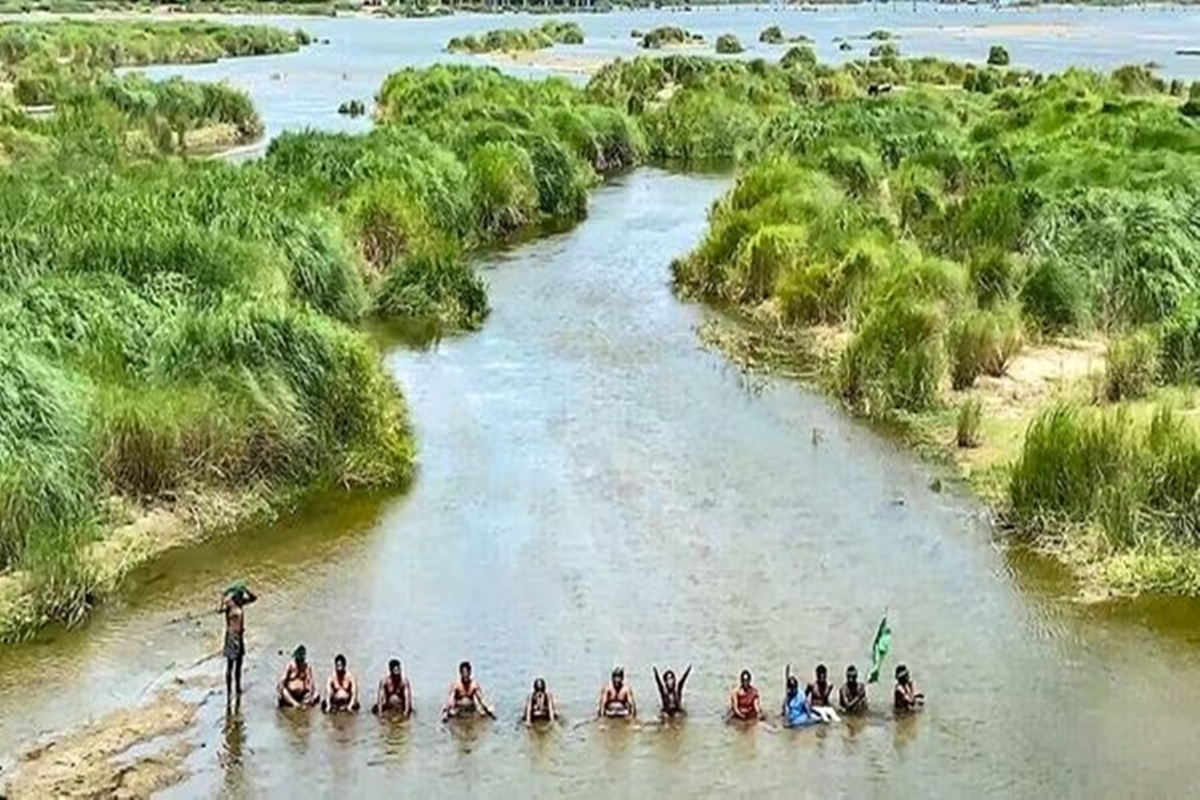Protests have erupted in Karnataka as tensions rise over the sharing of Cauvery River water with neighboring Tamil Nadu. This dispute has flared up once again following the recent Supreme Court decision not to intervene in the enforcement of water-sharing agreements between the two states and the decisions of the Cauvery Water Management Authority and Cauvery Water Regulation Committee. To better understand this ongoing conflict, let’s delve into the details of the Cauvery water dispute.
The Cauvery water dispute is a protracted and intricate conflict centered around the allocation of water from the Cauvery River, which originates in Karnataka and meanders through Tamil Nadu before eventually emptying into the Bay of Bengal. The dispute also involves the Union Territory of Puducherry, albeit to a lesser extent.
At its core, this conflict revolves around the distribution of the Cauvery River’s waters among these states and the Union Territory. Both Karnataka and Tamil Nadu have historically staked claims to substantial portions of the river’s water, primarily to meet their agricultural and irrigation requirements. Regrettably, this contention has often escalated into tensions, protests, and, regrettably, even instances of violence in the affected regions.
More about Cauvery water dispute:
The roots of this dispute stretch back to agreements and treaties made during the colonial era under British rule. However, these agreements, forged in the 19th and early 20th centuries, did not anticipate the population growth and escalating water demands that would ensue in the region, thereby exacerbating the issue.
Over the years, numerous efforts have been undertaken to resolve the Cauvery water dispute. These have included the establishment of tribunals and authorities designed to arbitrate on the matter, such as the Cauvery River Water Disputes Tribunal established in 1990. Nonetheless, achieving a final, mutually acceptable resolution has proven to be an arduous task, often marked by disputes between Karnataka and Tamil Nadu contesting the tribunal’s decisions.
The dispute is a complex interplay of legal intricacies, environmental concerns, and socio-economic factors. It has seen intervention by the Supreme Court of India on several occasions, with the court issuing directives mandating the release of specific volumes of water to the downstream state during crucial agricultural seasons.
Efforts to mediate and find a lasting solution to the Cauvery water dispute persist, with periodic negotiations, legal proceedings, and discussions. This ongoing conflict underscores the broader challenges associated with water management, allocation, and interstate disputes in India, where water is a precious and often scarce resource that holds immense significance for livelihoods and agricultural sustenance.












